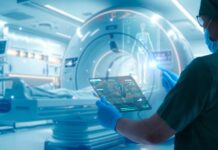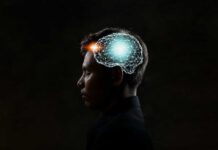
A staggering 94% of dementia patients remain completely unaware of their cognitive decline due to a neurological condition that blocks their ability to recognize their own deficits.
Story Highlights
- Anosognosia affects up to 94% of dementia patients, preventing awareness of their cognitive decline
- This neurological deficit is not denial but actual brain damage blocking self-awareness
- October 2024 marked a breakthrough with the first official medical billing code for tracking this condition
- The condition creates massive barriers to treatment and places enormous stress on caregivers
The Hidden Neurological Culprit Behind Dementia Denial
Anosognosia, derived from Greek meaning “no knowledge of disease,” represents a devastating neurological condition where patients genuinely cannot recognize their own cognitive deficits. French neurologist Joseph Babinski first identified this phenomenon in 1914, observing stroke patients who remained completely unaware of their paralysis. Unlike psychological denial, anosognosia stems from actual brain damage, particularly in the right parietal cortex, that eliminates the brain’s capacity for self-awareness and insight.
Over 94% Of Dementia Patients Don't Recognize Their Cognitive Deficits Because Of This https://t.co/buoXgq04FH
— Consciousness Intervention (@CSIntervention) September 2, 2025
Dementia’s Most Devastating Barrier to Care
Research reveals that up to 81% of Alzheimer’s patients experience anosognosia, with some studies showing rates as high as 94%. This neurological deficit creates a perfect storm for healthcare chaos. Patients refuse medications they don’t believe they need, reject safety measures for problems they can’t perceive, and resist interventions designed to help them. The condition transforms what should be collaborative care into a constant battle between well-meaning families and patients who genuinely believe nothing is wrong.
The Caregiver Crisis Nobody Talks About
Families face an impossible situation when anosognosia strikes their loved ones. Imagine trying to convince someone to take medication for a condition they’re neurologically incapable of recognizing. Caregivers report overwhelming stress and frustration as they watch their family members deteriorate while insisting they’re perfectly fine. This creates ethical dilemmas about autonomy versus safety, often forcing families into heartbreaking decisions about involuntary care and guardianship proceedings to protect patients from their own impaired judgment.
Medical System Finally Recognizes the Problem
October 2024 marked a watershed moment when anosognosia received its own medical billing code (R41.85) for patients aged 15 and older. This breakthrough enables healthcare providers to officially track and diagnose the condition, opening doors for targeted interventions and insurance coverage. The formal recognition validates what families and clinicians have long understood: anosognosia isn’t stubbornness or denial but a legitimate medical condition requiring specialized approaches to care management and family support.
Healthcare advocates emphasize that understanding anosognosia as a neurological deficit rather than psychological resistance fundamentally changes treatment approaches. This recognition offers hope for developing better diagnostic tools, caregiver support systems, and intervention strategies that acknowledge the biological reality of impaired self-awareness in neurological and psychiatric conditions.
Sources:
NCBI Bookshelf – Anosognosia
Cleveland Clinic – Anosognosia
Medical News Today – Anosognosia
Memory & Movement Charlotte – Anosognosia
Treatment Advocacy Center – Anosognosia Resources


















